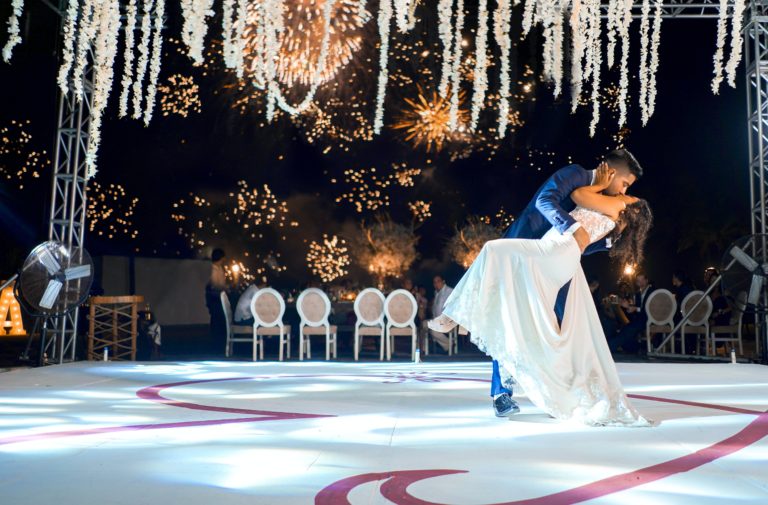Generally, there is a two-step process in becoming a lawful permanent resident by a family sponsor. First, the family sponsor must send a preliminary petition. Second, when that petition is approved and becomes current/available for that country based on the timing of the petition, then the beneficiary (requesting immigrant) must submit an application to become a resident. In some circumstances, the first and second steps can be submitted at the same time. In others, there are one, two, or even three additional steps before an application can be requested. It is important to have a skilled lawyer who understands all the procedural steps and knows how to properly gather and collect the required documentation when submitting a preliminary petition and/or an application.
Family-Based Petitions
Applicants for permanent residency in the U.S. must apply either (1) for immigrant visas, obtained from U.S. consulates abroad, or (2) for “adjustment of status,” obtained from the USCIS within the U.S.
Eligible applicants generally fall into two categories: those who do not fall under any quota/annual limit (such as “Immediate Relatives” and certain “Special Immigrants”), and those subject to quotas/annual limits for their country of origin under the preference system established by Congress. To obtain permanent residency one must usually (1) have certain very close relatives who are U.S. citizens or permanent residents, (2) have a job skilled in short supply in the U.S., or (3) be a refugee. Discussion on seeking temporary residency as a refugee or Special Immigrants are not covered in this blog.
Immediate Relatives
“Immediate relatives” do not fall under any quotas and persons in these categories may obtain permanent residency free of any quota. “Immediate relatives” include: (1) spouses of U.S. Citizens, (2) children of U.S. Citizens, provided the children are under twenty-one (21) years old and are unmarried; and (3) parents of U.S. Citizens, provided the U.S. Citizen is over twenty-one (21) years old. Spouses of U.S. Citizens who seek a permanent residency on the basis of the marriage will be given “conditional residency” status for a two (2) year period, if the underlying marriage is less than two (2) years old.
Preference System
Persons who are neither immediate relatives or Special Immigrants must fall into one of the categories of the preference system established by Congress. These people are subject to quotas/annual limits according to the country which the alien was born. In some cases there is no waiting time; in other cases there are relatively short waiting periods; in others the wait is virtually indefinite. Preference backlogs from many countries (Mexico, China, India, and the Philippines) underscore the importance of establishing and retaining the earliest priority date by filing and having a preference petition approved, which determines the applicant’s “place in line.” One big difference through the preference system is that spouses and/or unmarried minor children of an immigrant in any relative preference will usually be “derivatively” entitled to the same preference status as the principal immigrant.
The family sponsor preference system has the following preferences listed in order of preference:
- First Preference: Unmarried sons and daughters of U.S. Citizens – about 23,400 visas per year.
- Second Preference: Spouses and unmarried children and sons or daughters of permanent residents and conditional permanent residents – about 114,200 per year, of which 77 percent must be allocated to spouses and children under the age of twenty-one (21) of permanent residents.
- Third Preference: Married sons and daughters of U.S. Citizens – about 23,400 visas per year. If the beneficiary obtains a divorce while the application is pending, he or she becomes eligible for permanent residency under the first preference.
- Fourth Preference: Brothers and sisters of U.S. Citizens (the Citizen must be at least twenty-one (21) years old) – about 65,000 visas per year plus the unused visas from the other family sponsored preferences.
Residency Petition
The first preliminary procedure is for the U.S. Citizen-relative to file a preliminary petition on Form I-130 (Petition for Alien Relative) together with documents substantiating (1) that the petitioner is a U.S. Citizen (e.g., passport or birth certificate); and (2) that a bona fide kinship/relationship exists (e.g., marriage certificate, birth certificate). The petition is filed with the USCIS service center having jurisdiction over the place of residency of the petitioning U.S. Citizen. Processing times for I-130 petitions vary widely depending on the category of the petition and the USCIS’ allocation of resources.
Residency Application
The final stage of the process is the application either (1) for “adjustment of status” by filing Form I-485 (Application for Status of Permanent Resident) together with various other required documents (beyond the scope of this blog), submitted to the USCIS if the alien makes this final application within the U.S., or (2) the application for an immigrant visa by filing Form DS-260 (Application for Immigrant Visa and Alien Registration) together with various other required documents (beyond the scope of this blog), submitted to a U.S. consul if the final application is made outside the U.S. Where this application is submitted depends on the applicant’s whereabouts, if they were “admitted/inspected” or “paroled” into the U.S., and other circumstances beyond the scope of this blog. Applicants for adjustment of status in the U.S. have a right to be represented by an attorney during all phases of the application process. However, the presence of an attorney during an immigrant visa interview is subject to the discretion of each consulate. While denial of adjustment of status by the USCIS is subject to administrative and judicial review, denial of an immigrant visa by a consul is subject only to an informal review procedure.
Waivers
Both a request to adjust status in the U.S. and applying for an immigrant visa at a consul require an applicant to be admissible and not subject to an exclusionary ground. If an applicant is subject to one of the exclusion grounds, it is important to consider obtaining an applicable waiver before the applicant can obtain permanent residency. It should be noted that the decision to grant these waivers are usually discretionary and waivers are sometimes even denied to those eligible for them. Therefore, the best possible case should be made for the exercise of discretion favorable to the particular applicant.
Exclusions
Most of the exclusion grounds are based either on (1) criminal activity or other “misconduct”; (2) past or present adverse physical or mental conditions (e.g., contagious diseases, insanity, addiction, etc.); (3) unlawful presence bars, (4) “public charge” or (5) political backgrounds (e.g., communists and certain other “subversives” are subject to exclusion). A person who comes within one of the basic eligibility classifications, but also comes within one of the excluded classes, will not be able to obtain permanent residency unless the person or their lawyer is able to avoid the exclusionary provision (e.g., by obtaining a waiver). Exclusionary grounds and applicable waivers are beyond the scope of this blog and will be discussed in future blogs.
Obtaining lawful permanent residency is important for numerous reasons: unifying families, providing derivative benefits to other family members, preventing deportation, allowing international travel, and much more. Failing to properly complete the petition, application, waiver, or failing to submit the necessary documentation can result in a denial. It is important to have a legal expert on your side when facing these potentially negative outcomes.
Please contact Albert Mendoza Law for a free consultation at (916) 256-3434 or by clicking our consultation button on the top right of our website.
Join our Newsletter to stay up to date on the issues that matter to you by clicking here.

Albert Mendoza
At Albert Mendoza Law, you will receive the legal representation you need and deserve.




